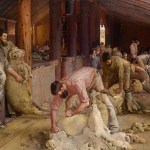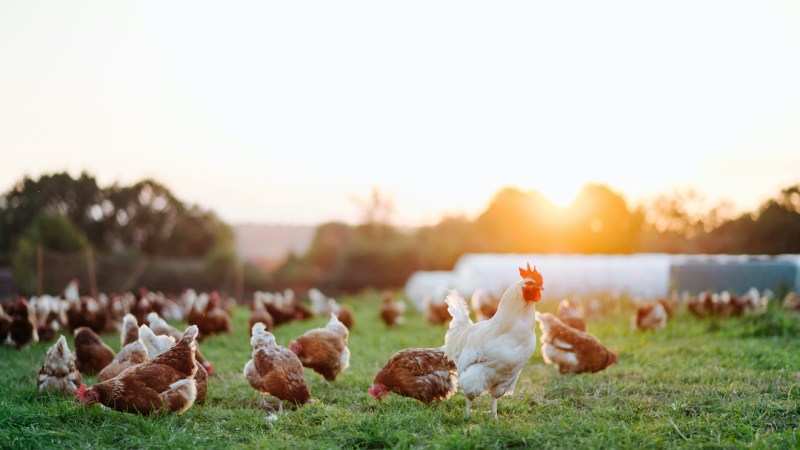It has now been 130 years since Tom Roberts, a renowned Australian artist who held…
James ‘Boogie’ Ferguson swapped boilermaking for shearing
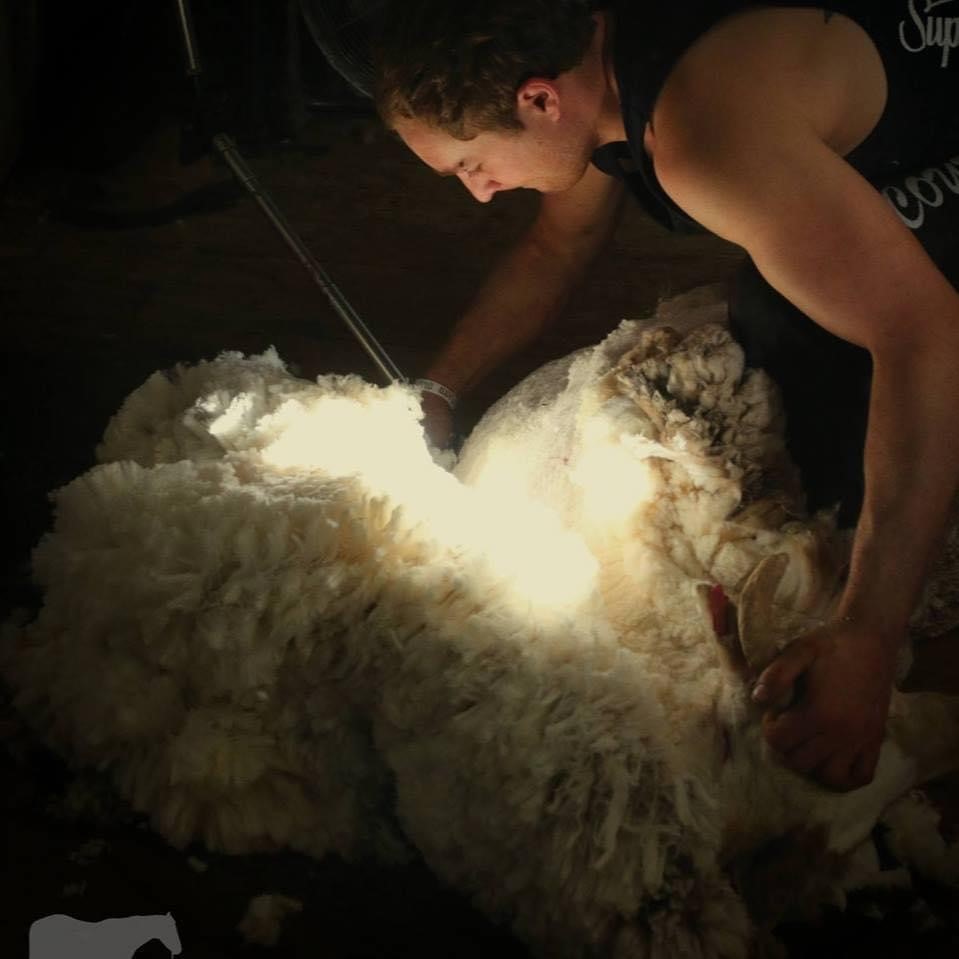
James ‘Boogie’ Ferguson was a third-year boilermaker apprentice when he reluctantly agreed to give his Dad, a third-generation shearer, a hand.
Once he got to work at Wellington in NSW – where his Dad was working at the time – it wasn’t long until he was captivated by what shearing had to offer.
Being a rugby league tragic meant the competitive nature of shearing was the first thing that grabbed him. Then came a sense of mateship among shearing teams, the camaraderie in the shed and the lifestyle which led him to trade in boilermaking for shearing.
That was 16 years ago and now aged 32, Boogie, a father of two, still loves shearing and has not looked back. He and his partner Krystal, a wool-classer, spent years travelling and working together around Australia before deciding to settle down in Albury and start a family and keep working in the industry.
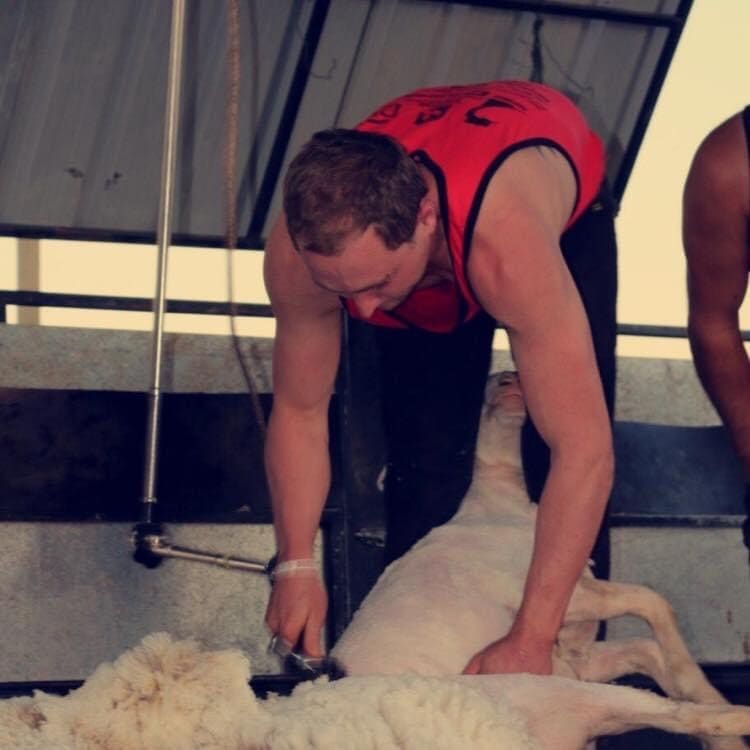
Every day is an opportunity for him to improve his skills so he can shear faster – and thereby make more money. In his first six months of shearing, he was hitting 200 sheep a day which is an outstanding achievement. He is also now training shearers in a range of courses run through Australian Wool Innovation (AWI).
“I’m a fourth-generation shearer but I didn’t want to be a shearer,” Boogie, who grew up at Surat near St George in Queensland but now lives in Albury, tells The Muster. “I was boilermaking and I had a holiday coming up and Dad said – ‘Can you come and give me a hand for a week being a rouseabout?’ (wool handler), so I did.
“I gave him a hand and he got me to shear a sheep and then as soon as I did that, I said – ‘Dad I’m not going back boilermaking’. I just loved the competitive nature of it. There was five people shearing and I just looked at them and thought I could be racing them every day and trying to win.”
James ‘Boogie’ Ferguson, sheep shearer and former boilermaker.
Learning shearing through AWI
Once Boogie set his mind to shearing, he completed a shearing course through AWI in Queensland. From there he worked as a wool-handler for six months and was shearing a sheep here and there as he gained experience. He also went on to do further courses in Victoria and New Zealand before himself becoming a trainer.
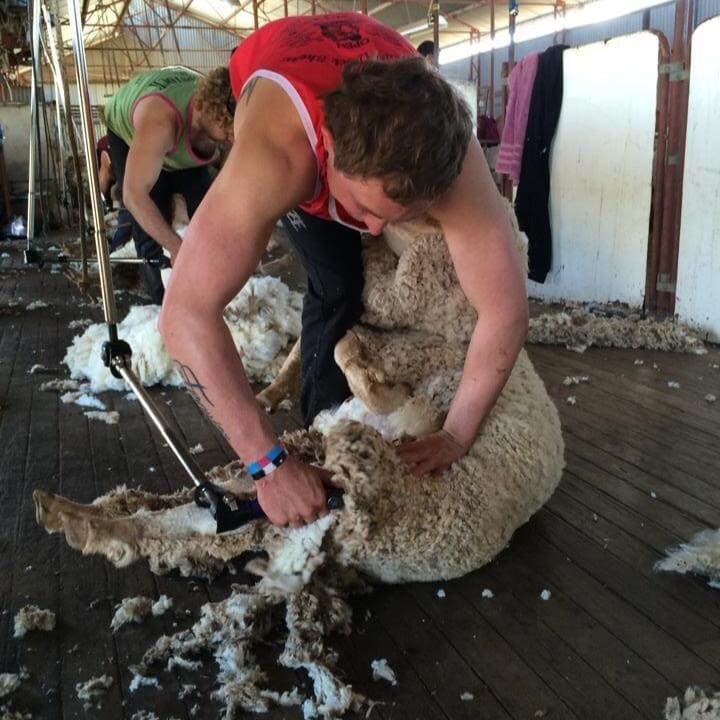
By the end of his first six months, he was shearing 200 sheep a day and earning good money.
“I bought my first home when I was 18 which was within two years of learning to shear,” he said.
But it is the atmosphere of shearing he loves most.
“It is really competitive, but friendly. You know the competition is there, but no one ever is trying to bring you down negatively,” Boogie said.
“There’s a mateship there and we are team, but we all push each other. Sometimes we have 1500 sheep to do for the day and we know we have to push each other so we can get them all done in that day and it doesn’t go into the next day.”
Health and fitness are also now a big part of a shearer’s life with Boogie saying the days of drunken nights after big days in the shed are mostly gone.
“This generation is more into nutrition, fitness and going to the gym. Body care is a big issue now and the longevity for shearers now should be a lot longer,” he said.
Shearing has also taken Boogie all over Australia and New Zealand as he joined the competitive shearing circuit. He was also the youngest ever Queensland state representative in shearing at the age of 20.
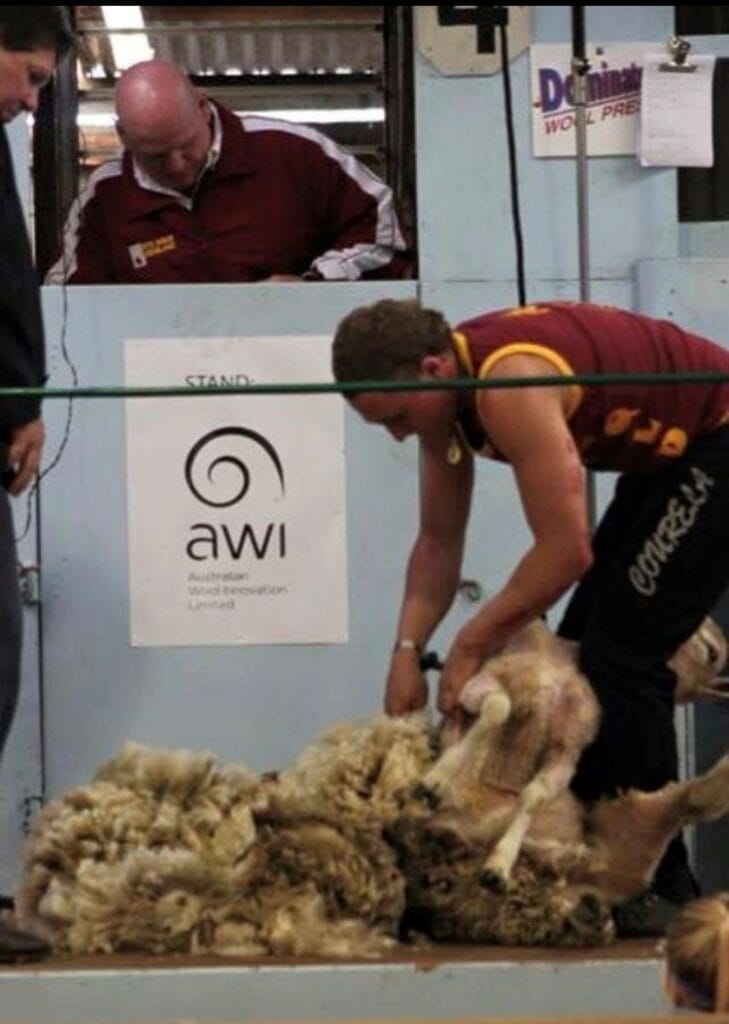
Shearing: ‘better than mining’
It has also afforded Boogie a lifestyle on the same financial par as his mates who opted to work in oil and gas mines but without the repetitiveness of always having to travel to the same place, or at all.
“The harder you work and the more sheep you shear, the more you get paid. I have mates that are in the mining sector, oil and gas, and they were making $100,000 a year and I’m making that now too,” he said.
The minimum rate to shear a sheep in Australia is currently $3.24 but this price has increased to up to $4 per sheep as the number of shearers in Australia dwindled due to COVID-19 restrictions.
“The shearer shortage has actually done a lot for the industry as now it has better standards. The sheds used to have no running water, no flushable toilets and there are now girls in the industry. But all that has changed. They are making a point to try and please the shearer now,” Boogie said.
“When they had the shearer shortage everyone started putting their prices up, we are on $3.24 and then some contractors started to pay $4, so if someone is shearing 150 sheep and they are getting $4, there’s $600 for a day before tax and that is not bad money. Some people only get that for a week.”
But it is the shearing life that he loves the best with the flexibility to be his own boss and work where he wants, when he wants.
“I reckon shearing is better than working in the mines. When you go to the mines you are out there for two weeks on, one week off. I can work all over Australia, wherever I want. I am my own boss and if I want to be in Albury today and next week I want to shear in Queensland, I can,” he said.
Boogie has now settled down in Albury with a family and finds he doesn’t travel as much as he used to with shearing as there is plenty of work around where he lives.
“Nearly 100 per cent of my work is around Albury. The work tends to be around Albury, Wagga, Dubbo or Bathurst,” he said.
“When I got to 32, I just decided I wanted to settle down in one area. But I sometimes go to Dubbo and shear for a while. I’ve got two kids and that is why shearing is good. Once I started to settle down with a family that was when I started to work around home a bit more and not travel so much. You are home every night in your own bed.”
For more information about AWI‘s shearing courses, please call 1800SHEARS.
If you enjoyed this feature, you might like to read our story on the sheepmeat industry.


